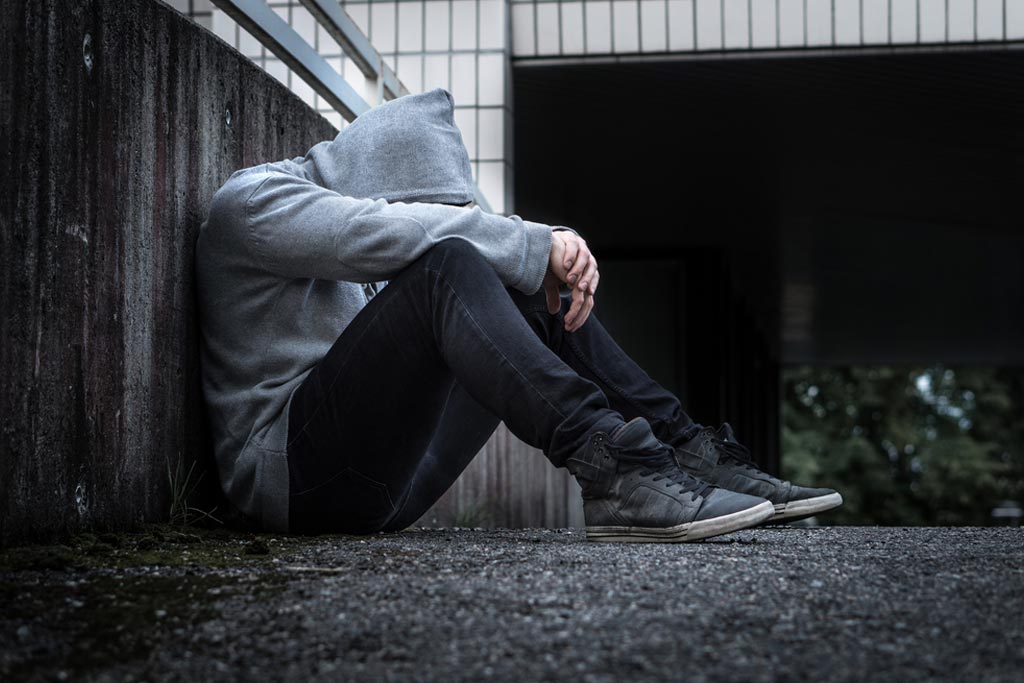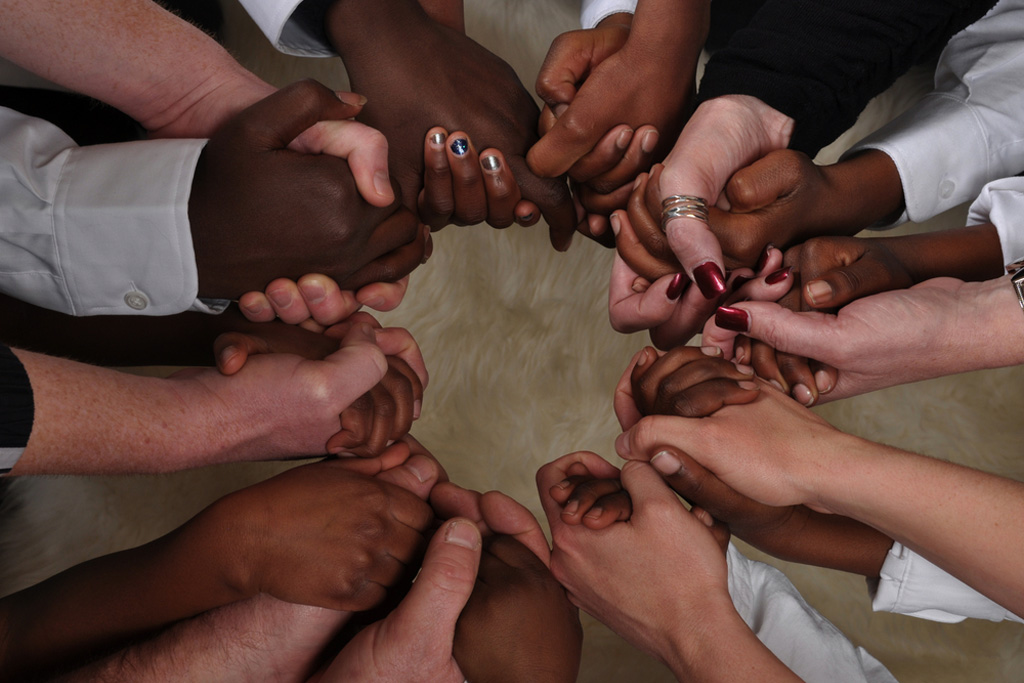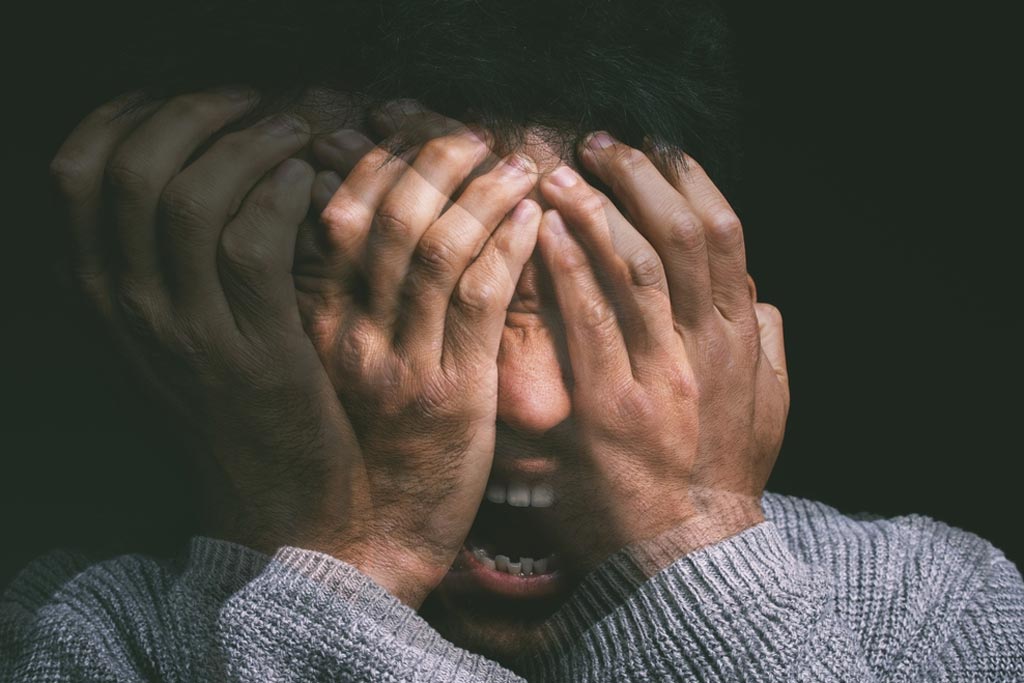The victim mentality is characterized by pessimism, self-pity, repressed anger and a belief that life is beyond one’s control. Victims blame any and every available scapegoat (fate, circumstances, other people, even objects! For their problems and disappointments. They often lead a crisis-ridden lifestyle, going from one trauma to another, never seeing the contribution they make in creating their own crises. According to them, nothing is ever their fault.
Unlike true victims, people with a victim mentality lament their misfortunes and stop there. They make no effort to learn from their mistakes, to analyze what went wrong, to pick up the pieces and move on. They wallow in self-pity, thinking that their shortcomings make them hopeless or that other’s actions excuse them from responsibility Their “poor me” attitude may be no problem for them, but it often creates anger and resentment in others.
Becoming a Victim
Victims always feel powerless. They passively accept what happens to them, attributing failures to their lack of ability and successes to “good luck”. Lacking in self-esteem and self-confidence, their self-image depends on others’ reactions to them. When others praise them, their self-esteem rises; when they’re criticized, they feel worthless. In psychological terms, this is known as an external orientation.
In contrast, people who are internally-oriented base their self-esteem and self-confidence on internally-held values and beliefs; when they live up to their own standards, they feel good about themselves regardless of what others may say. Praise from others may add to their sense of self-worth, but criticism doesn’t destroy it.
Developmentally, and external orientation is an extension of the natural dependency of childhood. Kids have little control over their lives; they must live with the results of decisions made by the adults around them. Hopefully, as they grow up, their parents help them realize their own personal power by encouraging them to make age-appropriate decisions. Acting as responsible role models and teaching them to temper their impulses with thought and planning.
However, when parents withhold affection and praise, and only criticize and belittle, children draw negative conclusions about themselves. They conclude that they have no control over their life and that nothing they do can alter this.
Passive and Aggressive Victims
By accepting hopelessness and helplessness, children learn to be victims. They grow into adults who are either weak and pathetic or chronically “mad at the world”. Whether passive or aggressive, victims are depressed, pessimistic, angry adults who expect little from life, but resent it just the same.
MISERY MONGERS: VICTIM PROFILES
Victims feel both angry and scared,. But often display only one of these emotions, depending on which was more acceptable in their family of origin. But fear and anger are two sides of the same coin: within the frightened victim lies repressed anger and resentment, and behind the angry victim’s aggression are deep fears of being alone and unloved.
As children, passive victims learn that anger must be choked back, lest it drive loved ones away, and angry victims learn to repress fears that might render them vulnerable to rejection. They develop certain patterns of interactions that keep them victims and bind others to them with ties of guilt and pity or fear and intimidation. Over time these feelings and actions become substitutes for love.
The Passive Victim
Passive victims’ underlying anger usually takes the form of “beating themselves up” when things go wrong, berating themselves for what they could have, would have or should have done differently. Their negative outlook sets into motion a downward spiral of self-defeat in which they see themselves as increasingly incompetent and unable to get ahead. Nothing good ever happens to them, they think. (Even if it did, they’d dismiss it and focus on the bad.) Their themes are “Ain’t It Awful” and “Poor Me”, classic “pity parties” that invite others to rescue them from their hopelessness.
The Sickness Tyrant
Sickness tyrants, says Herb Goldberg, co-author of Creative Aggression, expect the same special attention for being sick that they got as children. They succumb to their illnesses wholeheartedly. Some indulge in regular doctor visits, while others never see a physician, but all use their symptoms, medications or surgeries to escape responsibilities, displace unacceptable feelings and get care-taking in a way that is acceptable to them. They may use their illnesses to generate guilt and concern or to bully and manipulate others.
The Martyr
Martyrs expend a great deal of time and effort pleasing others, thereby earning praise and positive strokes. They appear to be selfless givers, but there’s a catch. The more they give, the more they expect in return. The martyr plays “You Owe Me,” a guilt-inducing script hinging on others’ sense of obligation. A typical example is the breast-beating parent who laments, “I give and I give and I give, and what thanks do I get?!”
The Angry Victim
Aggressive, angry victims seem to be constantly angry about something. Deeply fearful of being abandoned by others and of losing control, their anger wells up when their insecurities are incited. Although the target of their anger may vary, they feel like whatever they do, it’s never enough or never good enough. At the root of their problems is anger at their parents who didn’t love them enough or who criticized them too much.
The Bully
Bullies are self-righteous victims who lash out and steam-roll over anyone or anything that frustrates their needs. Profoundly insecure and emotionally immature, bullies take little responsibility for their emotionally abusive behavior. In fact, they maintain that if everyone would just do things the right way (meaning “their way”), they would never have to get angry. Bullies are so caught up trying to defend themselves against what they see as a cold, hostile world that it never occurs to them that others have feelings, too.
BEYOND VICTIMHOOD
Most victims probably were victimized as children. However, what happens to us as children is beyond our control, but what we do about it as adults is completely up to us. It’s our responsibility to resolve leftover conflicts and emotions from childhood – anger, fear and insecurity – so that we don’t continue to victimize ourselves as adults.
Moving beyond the victim mentality requires courage and commitment. Changing patterns learned in childhood is a risk, since it requires looking at the world in a new, more personally accountable way. Victims must learn to see how they contribute to (if not create) most of their troubles. That means recognizing that it’s not bad luck or fate or your spouse or your boss or anyone or anything else that controls your life: only you do.
Such a shift in perspective can be difficult to achieve alone. A therapist can help by acting as a mirror in which you can look objectively at the negative thought processes and emotional responses that fuel the victim mentality. For victims, therapeutic change begins with the question, “How can I change my behavior and take responsibility for my own life regardless of what others do (or don’t do)?”
Once in therapy, victims need to:
· Focus on themselves and what they can do to improve their lives now.
· Be realistic. Even with the best therapists, change will not come quickly. Therapy requires a lot of effort on the client’s part and you will only get out of therapy what you put into it.
· Avoid the urge to blame the therapist or assume change is impossible when results don’t come quickly enough or when therapy becomes a challenge. Victims tend to be easily defeated, so blame is a retreat to hopelessness and passivity.
VICTIMS’ VICTIMS
Victims can be manipulative. Since they feel powerless, they assume that they can only get love and attention indirectly (i.e. through manipulation). Unable to say, “I really want you to like me,” they’ll selflessly cater to others’ interests and desires hoping for love and friendship in return.
Instead of asking “Do you love me?” or “How much do you love me?” victims create crises and watch others’ responses for evidence of care and concern. They confuse sympathy and pity with love, willingness to listen to their litany of complaints with intimacy.
Handling victims can be tricky. They don’t respond well to direct confrontation, since that only reinforces their negativity and helplessness. But you can protect yourself from their manipulations:
· Don’t get sucked in by victims’ feelings. Victims use their suffering to keep others emotionally tied to them. Their feelings are real, but often subject to rapid change.
·Don’t give advice. While victims may seem helpless to resolve their problems, the truth is , they don’t want to. Giving advice and counsel may make you feel good, but don’t expect the victim to act on it. When victims seek advice, they are looking for evidence of your care and concern, not a plan of action. (If your suggestions are usually met with a “yes but..” response , you know you’re dealing with a victim.)
· Go with the resistance and make it worse. Agree with victims: life truly is awful for them. Often, they’ll change their tune, saying, “things aren’t that bad…”
· Make it their problem. Express confidence in their ability to find a solution. By refusing to give advice, you reinforce the idea that victims have the power to solve their own problems.
If you follow these guidelines, victims will either begin to take responsibility for themselves, or they’ll seek sympathy elsewhere. Either way, you won’t be their victim.
TAKING CONTROL
Whether passive or aggressive, victims can take control of their lives by taking responsibility for their feelings, thoughts and actions.
All things in life are choices. You may think, “I have to go to work.” But the truth is you choose to go to work because you want the income it brings. Similarly, you may think feelings just happen, but, in fact, feelings are emotional reactions you choose to have. Recognizing that you always have choices, even when the alternatives are unattractive (like going to work or going broke) or unimaginable like not sinking down into depression when things don’t go your way), is the first step in taking charge of your life.
When you blame others for what happens to you, you give away your power. Every time you say things like, “You made me mad!” you’re telling someone (and yourself) that they have power over your actions and feelings. Start using “I” messages. It’s a subtle change, but, over time, changing your language will help change your beliefs.
Being unclear about what you want and need from others guarantees disappointment. Don’t expect people to read your mind. Tell others exactly what you want and expect of them, and they will be less likely to let you down or take advantage of you.
In the face of such constant companions as crisis, injustice and disaster, happiness can seem an impossible dream for victims. Their self-defeating, all or-nothing, negative thinking leads victims to measure happiness by an absence of problems rather than the presence of pleasure. But this kind of pessimistic happiness takes effort since it requires such determination to seek out and focus on the negative. The same effort applied to optimism will bring much greater rewards.
Moving beyond the fear, anger and pervasive negativity you’ve carried around since childhood will take time, effort and a firm commitment to change. But you can unlearn a victim mentality. A therapist can help you learn new, more powerful ways of thinking, feeling and interacting with others so that you can take control of your own life.
REWARDS OF RESPONSIBILITY
The psychological impact of a lack of personal responsibility can be devastating. Studies show that when people cease to be self-reliant (as with those on welfare for long periods of time) they suffer a considerable loss of self-esteem. They become unable to identify their skills, their initiative declines and they enter a downward spiral of decreasing self-esteem and self-respect and increasing failure.
Successful people tend to:
· Take full responsibility for their actions instead of blaming others
· Learn from mistakes, instead of seeing them as signs of incompetence
· Improve the way things are done instead of clinging to old habits.
Clearly, accountability is crucial to personal fulfillment and success.
On the Job
BUCK PASSING AND FINGER POINTING: VICTIMS ON THE JOB
Too often, the workplace becomes a stage for unresolved family dramas to be replayed as people unconsciously replicate childhood patterns with coworkers.
For children of perfectionist parents who withheld affection, attention and approval, the performance orientation and competition of the workplace can stimulate a child-like desire to please authority figures. Parents who seek culprits rather than solutions create insecure adults who assume that job security depends more on escaping blame for mistakes than on competence and productivity. Caught up in their own personal anxieties, they reflexively put up a smokescreen of excuses and scapegoat others when problems arise; getting their work done becomes secondary to interpersonal conflicts in the office.
A victim in the workplace is like the one rotten apple that ruins the barrel; one victim breeds others. Buck-passing and finger pointing is costly and inefficient; team efforts grind to a halt as workers seek ways to protect themselves from blame. The resulting every-man-for-himself environment erodes team spirit, slows personal and corporate growth, and discourages creativity.




